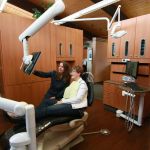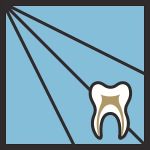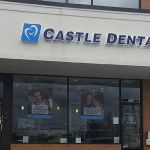- 1-Understanding-Cracked-Tooth-After-Trauma
- 2-Signs-and-Symptoms-to-Watch-For
- 3-Immediate-First-Aid-and-Care-After-Injury
- 4-Professional-Treatment-Options-for-Cracked-Teeth
- 5-Preventing-Complications-and-Follow-Up-Care
- 6-Personal-Story-of-Successful-Cracked-Tooth-Recovery
- 7-Where-to-Find-Expert-Dental-Care-and-Support
1. Understanding Cracked Tooth After Trauma
A cracked tooth after trauma or injury can range from minor surface cracks to deep fractures affecting the tooth’s structure and nerves. Such injuries often result from accidents, falls, sports impacts, or biting down on hard objects. Understanding the extent of damage is critical to determining appropriate treatment and avoiding further complications.
Cracks may not always be visible to the naked eye, requiring dental evaluation including X-rays or specialized imaging to assess severity.
2. Signs and Symptoms to Watch For
Common signs of a cracked tooth include sharp pain when chewing, sensitivity to hot or cold, intermittent discomfort, swelling of gums, or visible cracks on the tooth surface. In some cases, the pain may be localized or radiate to surrounding areas.
Early recognition of symptoms helps prevent worsening of the condition and increases the chance of saving the tooth.
3. Immediate First Aid and Care After Injury
After trauma, rinsing the mouth gently with warm water and applying a cold compress externally can reduce swelling and discomfort. Avoid chewing on the injured side and take over-the-counter pain relievers as needed.
Seeking prompt dental consultation is essential to evaluate the crack and begin appropriate treatment.
4. Professional Treatment Options for Cracked Teeth
Treatment depends on the crack’s depth and location. Minor cracks may be managed with bonding or sealants, while more severe fractures require crowns, root canal therapy, or even extraction if the damage is irreparable.
Timely professional care helps restore function and aesthetics, reducing the risk of infection and tooth loss.
5. Preventing Complications and Follow-Up Care
Following treatment, maintaining excellent oral hygiene and attending regular dental check-ups prevent complications such as abscesses or further fractures. Avoiding hard foods and protecting teeth during physical activities also supports recovery.
Continuous monitoring ensures long-term dental health and functionality.
6. Personal Story of Successful Cracked Tooth Recovery
After a fall during a soccer game, Emily suffered a cracked tooth that caused intermittent pain. Prompt dental care with crown placement and adherence to post-treatment guidelines allowed her full recovery without complications, enabling her to return confidently to daily life.
Her experience highlights the importance of swift action and professional guidance in managing tooth injuries.
7. Where to Find Expert Dental Care and Support
For expert advice and effective treatment of cracked teeth, visit Dentistry Toothtruth. Our experienced professionals provide comprehensive care, personalized treatment plans, and ongoing support to ensure your dental health is restored and maintained.







 Chalet Dental Care5.0 (739 review)
Chalet Dental Care5.0 (739 review) Angela Manning DDS PC4.0 (66 review)
Angela Manning DDS PC4.0 (66 review) Central Pennsylvania Endodontics, LLC5.0 (241 review)
Central Pennsylvania Endodontics, LLC5.0 (241 review) Castle Dental & Orthodontics4.0 (249 review)
Castle Dental & Orthodontics4.0 (249 review) Oral Sleep Appliances, LLC0.0 (0 review)
Oral Sleep Appliances, LLC0.0 (0 review) McDowell Dentistry of Goodyear4.0 (279 review)
McDowell Dentistry of Goodyear4.0 (279 review) The Importance of Oral Health Education During Pregnancy for a Healthy Pregnancy
The Importance of Oral Health Education During Pregnancy for a Healthy Pregnancy Best Tips for Brushing Your Teeth Properly for Healthy Gums: Essential Techniques for Oral Health
Best Tips for Brushing Your Teeth Properly for Healthy Gums: Essential Techniques for Oral Health Why Skipping Dental Checkups Can Lead to Bigger Oral Health Problems
Why Skipping Dental Checkups Can Lead to Bigger Oral Health Problems Advantages of Porcelain Dental Restorations
Advantages of Porcelain Dental Restorations How Can Diabetes Cause Tooth and Gum Problems? Preventing and Managing Oral Health Issues
How Can Diabetes Cause Tooth and Gum Problems? Preventing and Managing Oral Health Issues Healthy Habits for Promoting Good Oral Health and Hygiene: Tips for a Healthy Smile
Healthy Habits for Promoting Good Oral Health and Hygiene: Tips for a Healthy Smile